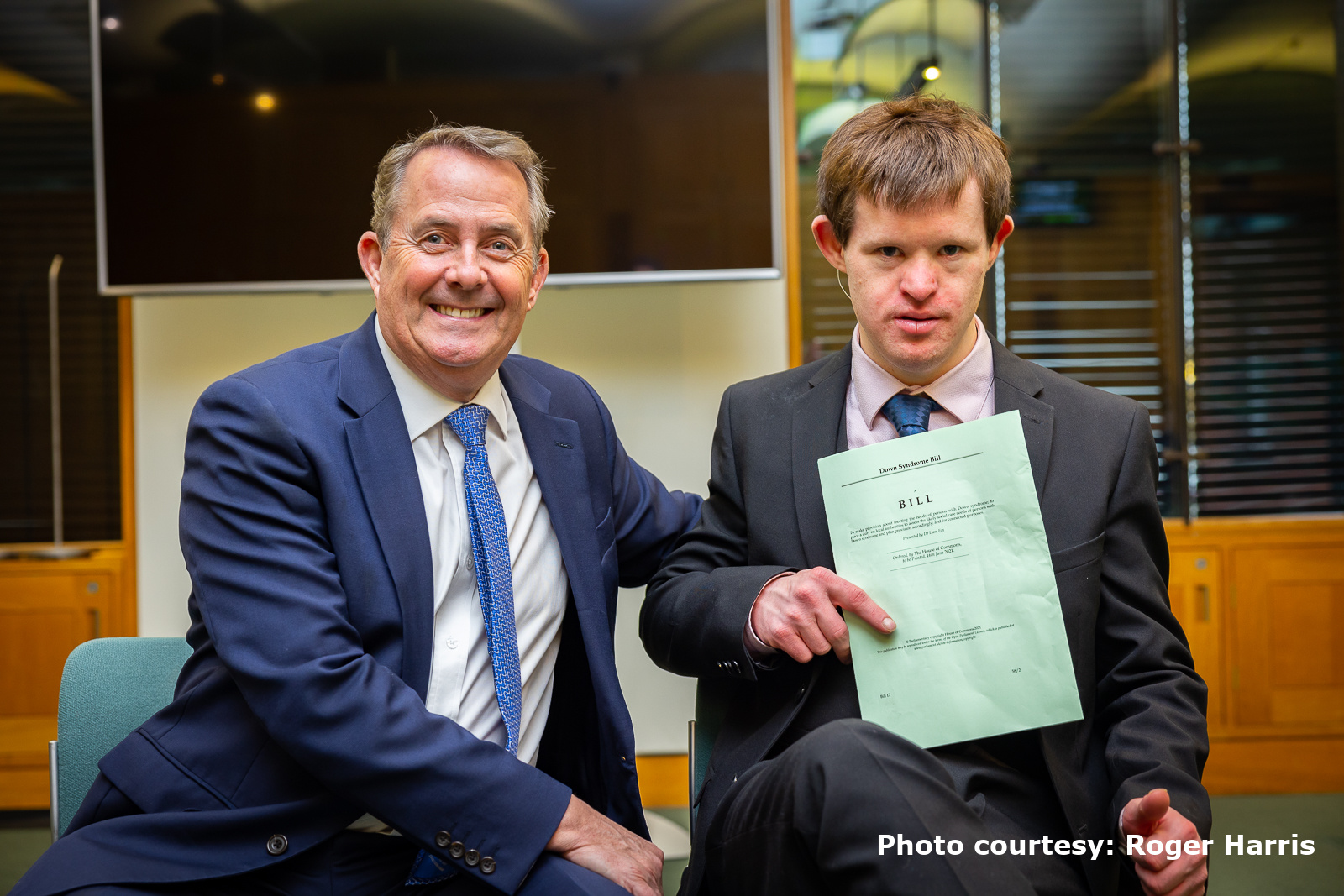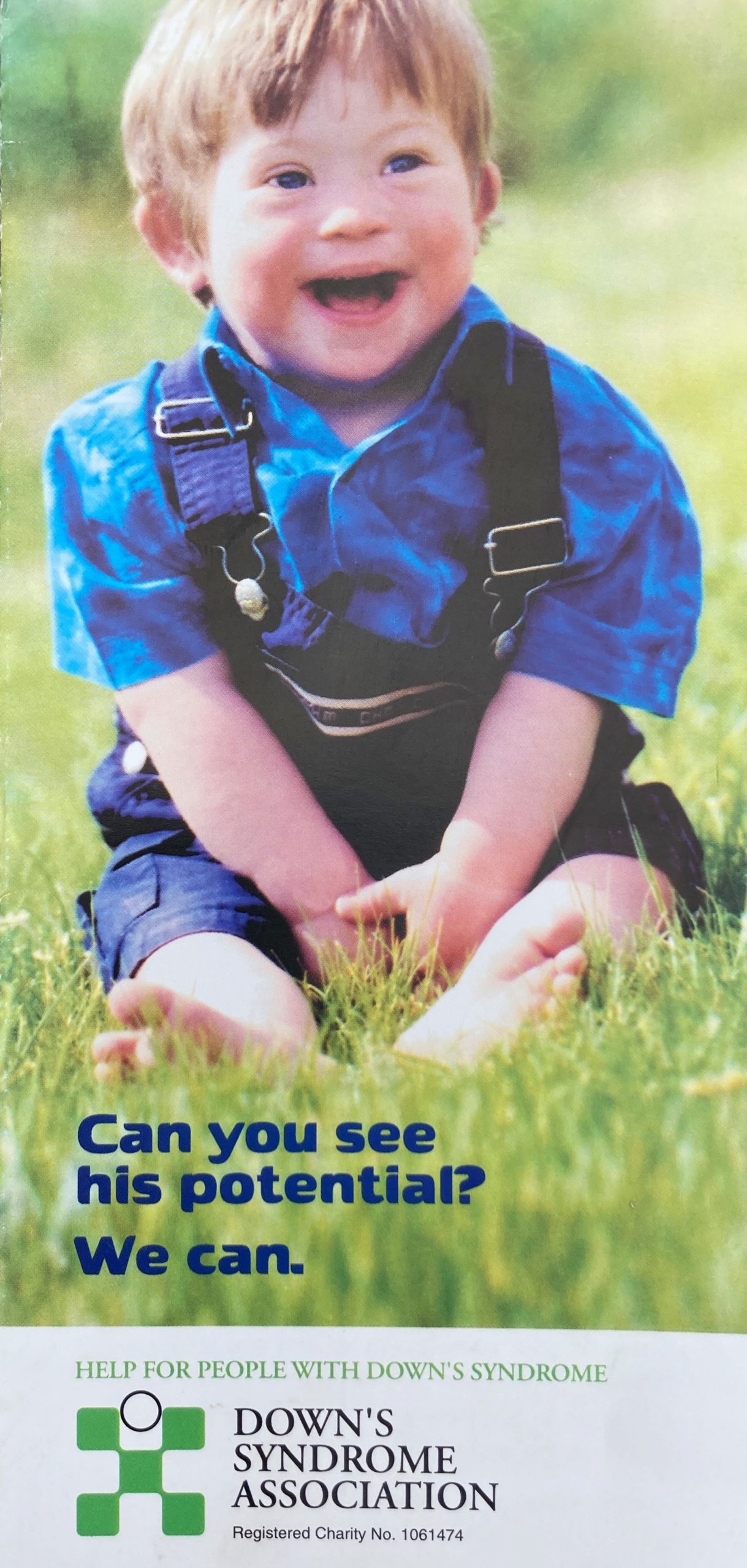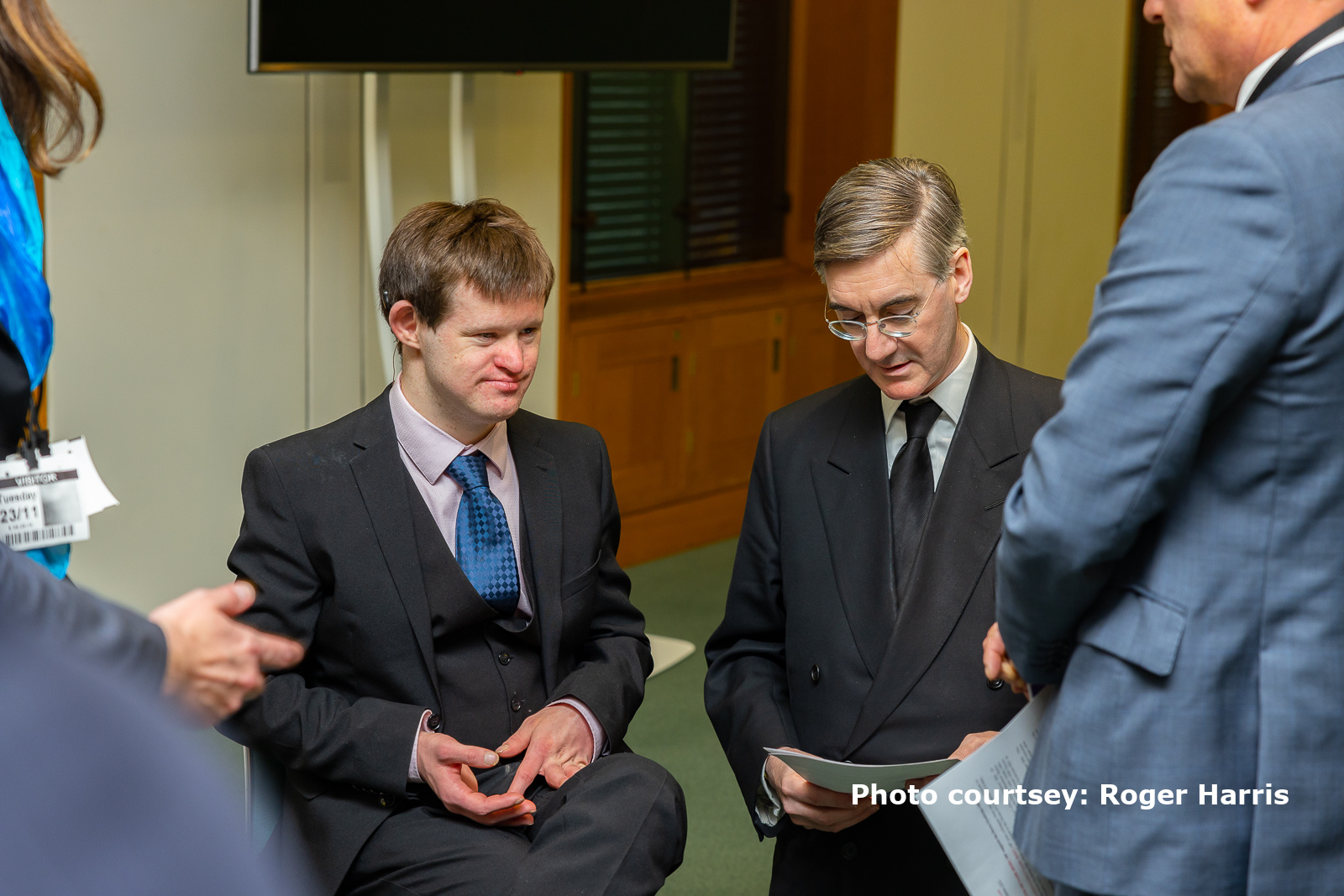 On Tuesday, 22-year-old Freddie Tall travelled to Parliament to meet MPs. He was there to show his support for the Down Syndrome Bill being brought forward by the Rt Hon Dr Liam Fox. Seeing Freddie standing up for something he believes in at Parliament is something his mum Annabel – who works with Liam Fox – says she never thought she would see.
On Tuesday, 22-year-old Freddie Tall travelled to Parliament to meet MPs. He was there to show his support for the Down Syndrome Bill being brought forward by the Rt Hon Dr Liam Fox. Seeing Freddie standing up for something he believes in at Parliament is something his mum Annabel – who works with Liam Fox – says she never thought she would see.
Written by Freddie’s mum Annabel
Freddie was born in 1998 six weeks premature. He was born with his intestines outside his body and spent a month in Neonatal Intensive Care. I became involved with the Down’s Syndrome Association (DSA) very early, first joining what was then the local branch, the Bristol DSA. The DSA were a great source of advice and information particularly putting us in touch with other parents locally. When Freddie was 18 months old, he was featured on the front of the DSA leaflet below.
 When Freddie was three, he was identified as having significant hearing loss (50dB both sides) which had been masked by his Down’s syndrome and the assumption from the hospital that his lack of speech was ‘normal for Down’s syndrome’. From age three, Freddie had hearing aids and when he was five, we found about Bone Anchored Hearing Aids from an article in the DSA newsletter. That started another quest when we discovered he had to travel to Birmingham for treatment. I campaigned for a centre to be established in Bristol which was successful. When Freddie was 11, we asked for an Autism assessment as his development seemed to be very different from other young people we knew who had Down’s syndrome. That started an eight-year marathon and he was finally diagnosed with Autism when he was 19. Again, Down’s syndrome had masked the diagnosis, with medical professionals having a very poor understanding of the condition.
When Freddie was three, he was identified as having significant hearing loss (50dB both sides) which had been masked by his Down’s syndrome and the assumption from the hospital that his lack of speech was ‘normal for Down’s syndrome’. From age three, Freddie had hearing aids and when he was five, we found about Bone Anchored Hearing Aids from an article in the DSA newsletter. That started another quest when we discovered he had to travel to Birmingham for treatment. I campaigned for a centre to be established in Bristol which was successful. When Freddie was 11, we asked for an Autism assessment as his development seemed to be very different from other young people we knew who had Down’s syndrome. That started an eight-year marathon and he was finally diagnosed with Autism when he was 19. Again, Down’s syndrome had masked the diagnosis, with medical professionals having a very poor understanding of the condition.
Freddie started school in 2004, one of the first years to go through school with an entitlement to mainstream education. In a pattern that will be familiar to many other parents, we had to go to tribunal. So far I have had to initiate tribunal proceedings three times to secure his provision, most recently three years ago. Each time the conflict with the Local Authority has come down to two things. Firstly a misunderstandings on their part about their legal duties and secondly, the potential individual abilities people with Down’s syndrome may have and type of support they need. He is now coming to the end of his education and time under an EHCP. We are looking at adult provision and feel like we’re starting the whole trail blazing process again.
Freddie was one of the first children with Down’s syndrome to go through education with the security of a legally enforceable education plan. Despite that, we have encountered numerous hurdles and difficulties. It has been hard to get diagnosis and treatment for medical conditions and has been very hard to simply have the life included in society that most take for granted. As he moves into adulthood, the Down Syndrome Bill will make it easier for him to find the provision and opportunities he needs and will provide the  foundation for those following us to experience an easier path.
foundation for those following us to experience an easier path.
From Freddie’s perspective, he is non-verbal, so his view of the Bill is based on his actions rather than his words. When I asked if he would like to go to Parliament to help with the Bill he agreed wholeheartedly and when I picked him up from college he had chosen to wear a three-piece suit rather than the smart casual I had suggested, a decision which has turned out to be much better than mine. He worked enthusiastically with two other young people with Down’s syndrome for over two hours.
Today’s #DownSyndromeBill event in @UKParliament was an outstanding success. Thank you so much to @LiamFox @fionnathan Max Freddie @kenross2011 Rachel @davidgoss Freddie R & Ben and all the cross party MPs who attended 😊
Politics at its best 😊@GillianKeegan @NDSPolicyGroup pic.twitter.com/9PPcyep9VZ— Annabel Tall (@annabeltall) November 23, 2021
